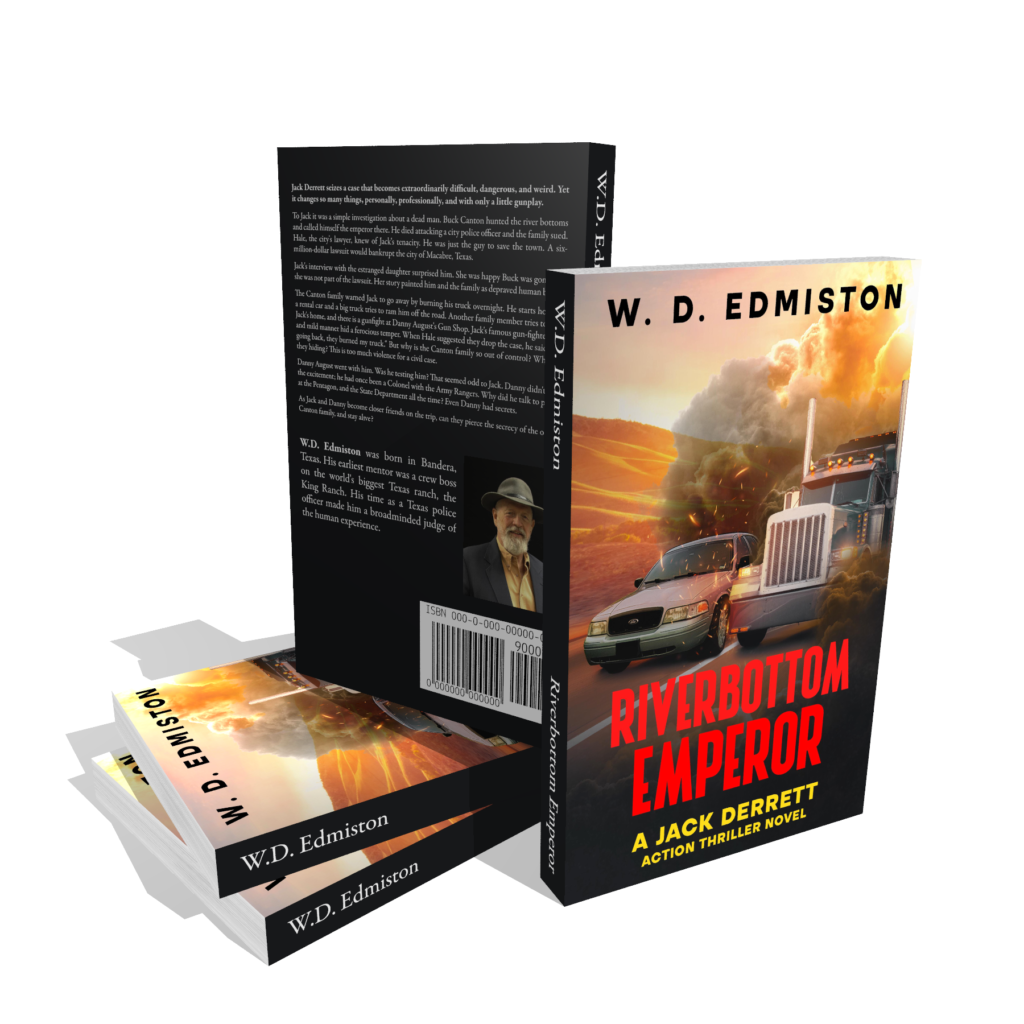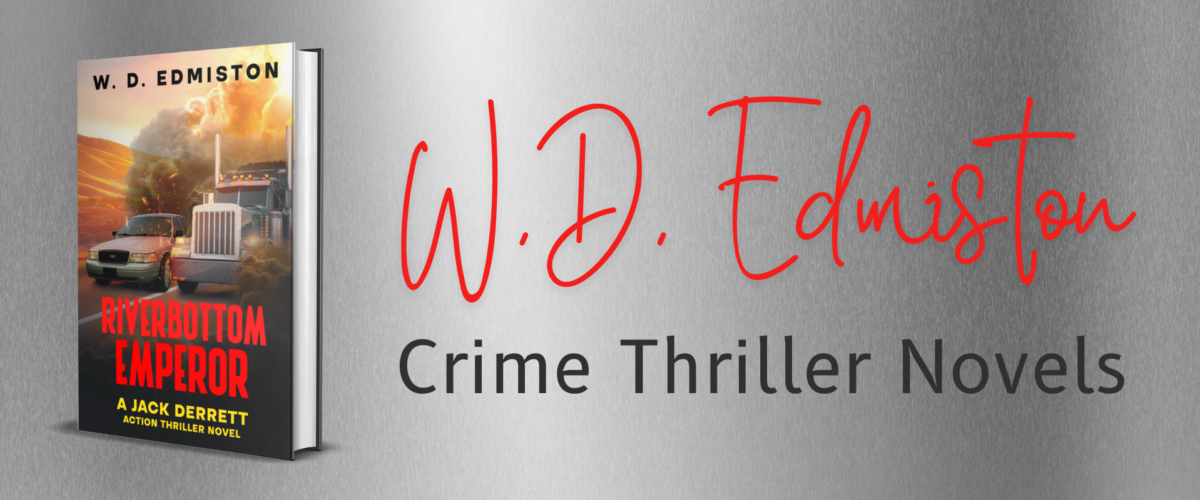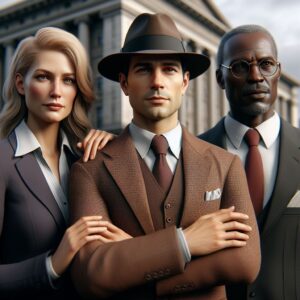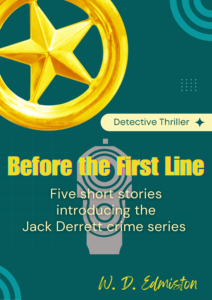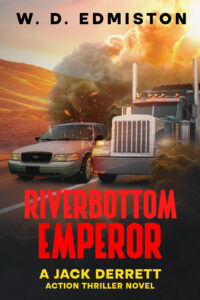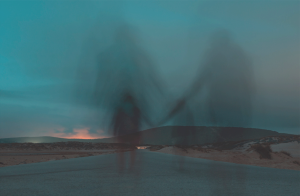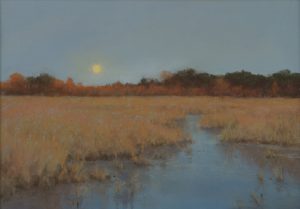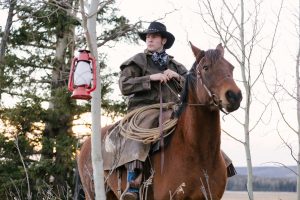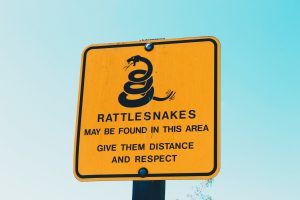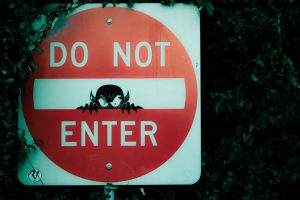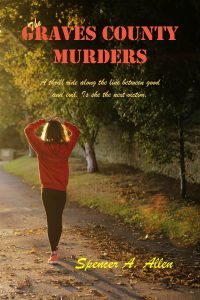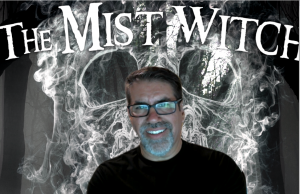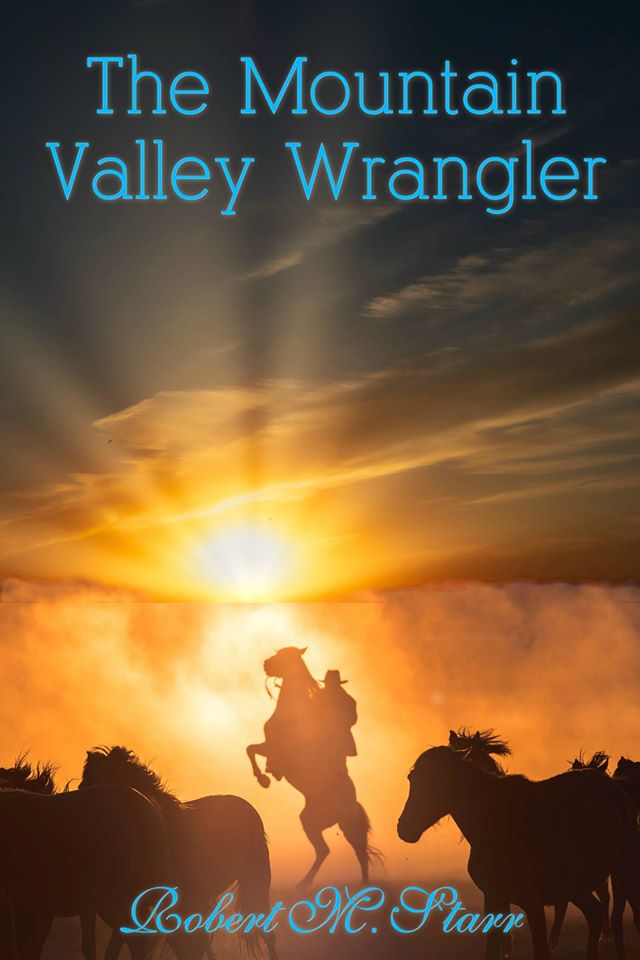Hardy Waites – A Halloween Story
By Spencer A. Allen
Halloween Special
Hardy finished buttoning his pajamas as he came from the bathroom, with freshly brushed teeth. He had also applied a variety of skin preparations then took the evening batch of prescription medications. Thus anointed, he was ready for bed. He wished his wife Dorothy a good night, gave her a peck on the cheek, then slipping under the covers, he rolled over to where she always lay and tucked the pillow under his head just right
“Ahh, dear,” Hardy said quietly, “it’s cold tonight, the bed feels good.” She said nothing as two thumps signaled Boots and Sox had clamored to their places in bed.
Later as he slept deeply, he found himself walking out of the planned community along the familiar sidewalks. The easement where the electrical wires went through on their tall towers beckoned him. He heard rustling in the woods telling him there were deer in the cool shade of the early summer morning. At some point, the dream morphed into some other late-night thoughts of nothingness.
Most days were like that with Dorothy. What a life they had together after he returned wounded from the South Pacific. He met her at the ammunition plant during the war and fell in love at first glance.
The next morning, he decided to take the sidewalks again to the easement and open space where the power company kept the grass cut. It went all the way to his daughter and son-in-law’s spread.
Looking into the notch of the Chinaberry tree, Hardy took from hiding, his favorite walking stick. He always left it there to walk the easement. In the twilight, he picked across the rough surface. The change in the light made him jumpy, he imagined shapes, he heard noises, music mostly and an occasional sigh or gasp of surprise. Eventually, he rubbed his eyes as he saw a boy smiling at him. The boy then struck a pose of a baseball pitcher and Hardy knew what to do. He shifted, bent slightly at the waist, and hoisted the limb over his shoulder like a batter. The rock came rather slow, a hanging ball, and Hardy slapped it into the tree line. The boy jumped up and down in glee and grabbed another rock. He slipped back his hat and looked toward a catcher that was not there. Hardy saw there was a gaping cut exposing bone on the boy’s forehead, then he disappeared and Hardy was alone in the clearing. The dew had fallen, and he and his stick stood tired but happy from the experience. He walked on toward the sidewalk, away from the ghostly area and almost the real world. For what seemed to be several years, that was his routine. He would walk the three miles, throw rocks for the boy with a cut on his forehead, see the wildlife, or meet other wordless friends, some very new, some very old. He went back to them as soon as possible. Hiding the stick, he walked home thinking hard. He had thought his home was a mystical place for him and Dorothy alone. But it had expanded to the easement. When he got home, she was washing dishes. There was no noise. Later they sat in their green recliners, she nodded off to sleep and he watched the late news. Then Hardy’s night time routine of brushing and skin preparations started and when it was finished Dorothy was in her place, the two dogs joined them and he found the sweet spot on his pillow.
The next morning, he sat sipping coffee thinking of the oak stick with its carved notches and leather lanyard. He could not wait to go back to the easement. In the sunlight, he took the stick to the easement.
The boy with the bad cut on his forehead ran up and stopped the regulation distance from Hardy and began his windup. Hardy took his stance and bunted the ball only a few feet away and began to quickly run. The boy scooped up the rock and threw it to the tall teenaged girl with braces and platted hair at First Base. “Oh,” Hardy thought, “someone new, she’s pretty.”
Then, Hardy walked on across the wide easement, a half-mile away thirty or more feral hogs crossed the expanse at an angle. The deer occasionally snorted at his presence, but he ignored them.
When they topped the ridge, Hardy saw that Sammie was playing inside the chain-link fence. When he got closer Sammie saw him and yelled inside, “Paw-Paw’s here.” Then she ran to the fence gate and jumped up into his arms. Steph came out with the baby, Jules, Hardy kissed the one-year-old and nuzzled her neck. The baby giggled.
Hardy and Sammie dug in the sandbox, made beach bucket castles and pushed them down with a big yellow plastic dump truck. It seemed like they played forever. That afternoon Dorothy met him at the fence. She looked pretty in the yellow dress.
“I think tonight I should walk back with you,” she said and took his arm and hugged it to her. That night, he used the stick to walk Dorothy all the way home.
Hardy was watching the evening news when he went to sleep in his chair for the last time. He would never again, in this life, brush his teeth, apply his lotions, and slip into his pajamas before bed. He would never again pretend to kiss the ghost of his wife Dorothy, dead almost 7 years. Boots and Sox who left the earth years before Dorothy, would not jump on the bed and curl against their favorite masters.
Goldie, the 30-year-veteran postman, stopped Earl Foreman the Police Chief at McDonald’s. He mentioned that mail was stacking up at Hardy’s home. The Chief asked two of his boys to meet him for a welfare check. The front door was open, the home was neat, nothing was out of place. Pictures were on the mantle of Hardy and Dorothy. Their dogs and family were displayed too.
In the recliner, Hardy Waite’s desiccated body was sunken into the cushions. His carved walking stick was leaned against the armrest. When the Chief informed Stephanie, she could not believe it.
“He played with Sammie in the sandbox yesterday.” she told the police officer.
Stephanie’s husband walked to the car with the Police Chief, “George, can you come down and identify the body?”
“Sure Chief,”
“I don’t know what to say about Mr. Waites being here yesterday. I assure you he has been dead at least a month.”
“He used to come a lot but had to stop driving a year ago, he could hardly walk. But Stephanie has been talking about his visits all along. I thought she was keeping up with him.”
“Well, time gets away from us.”
“No, Chief, she has not mentioned Sammie before. That would have made me pay more attention.”
“Why is that.”
“Our baby’s name is Jules. Sammie was our still-born daughter, from about five years ago.”
***
Copyright – W.D. Edmiston, OGSB Authors 2020 POB 436, Whitehouse, Texas
